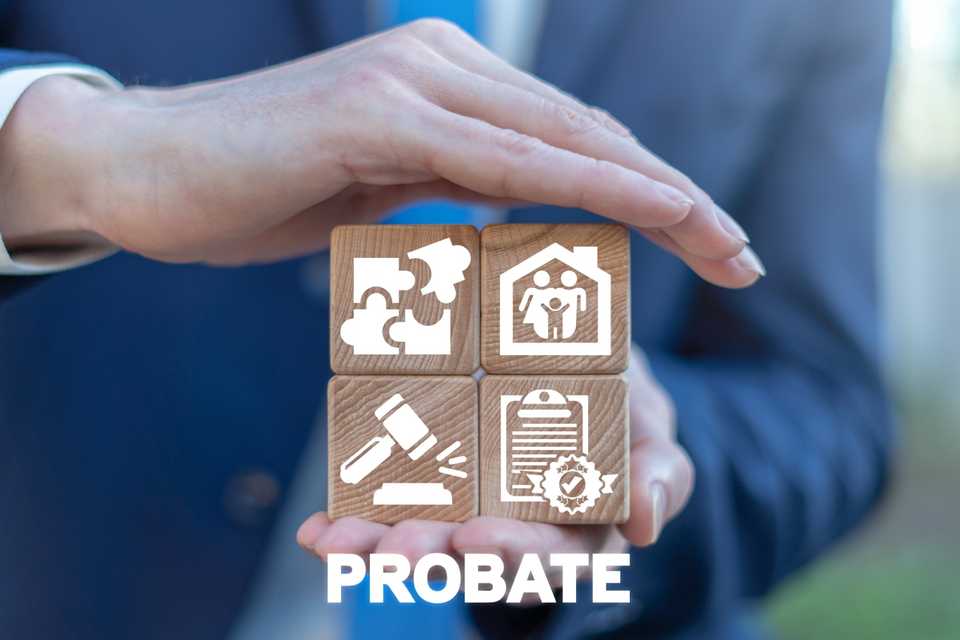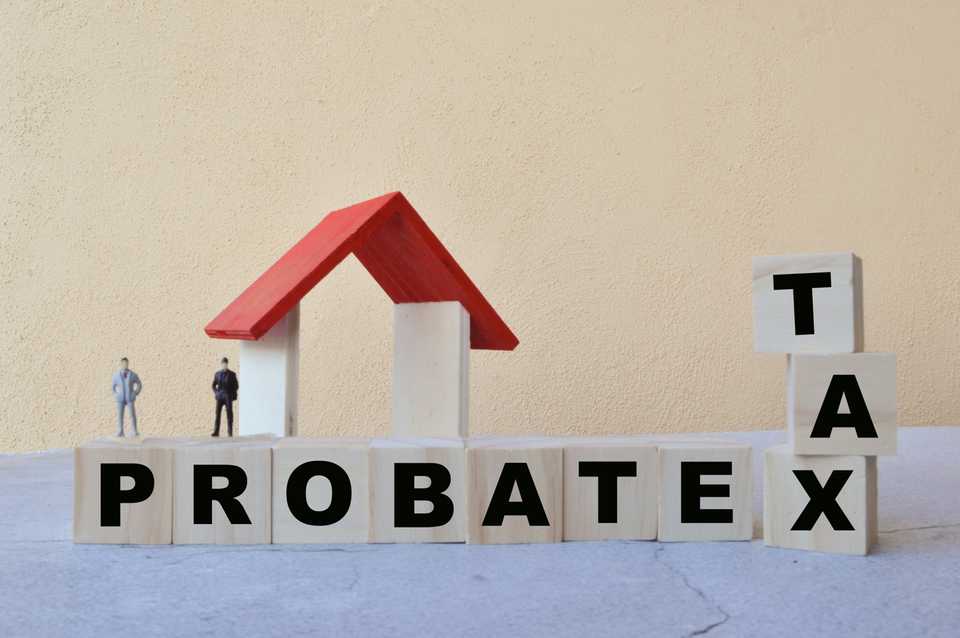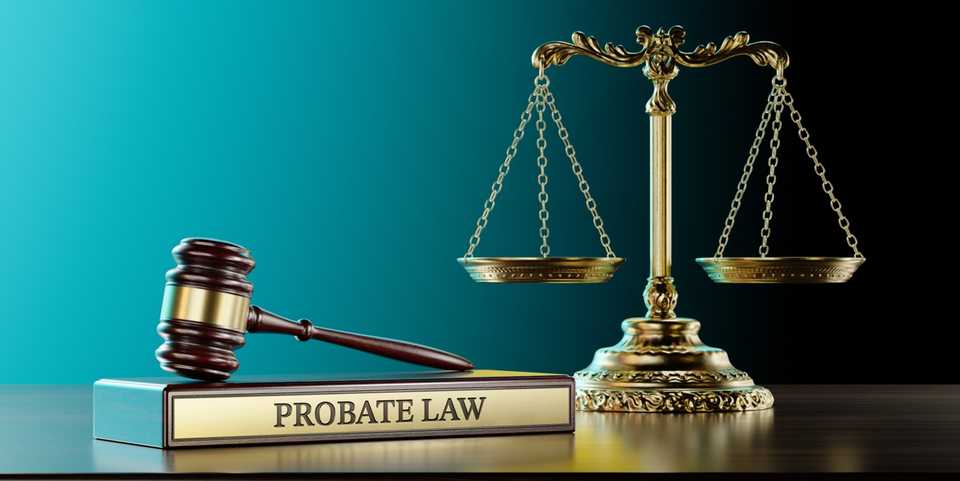The process of succession, often referred to as probate, can be both complex and emotionally demanding for those close to the deceased. This legal procedure involves several crucial steps to ensure the proper transfer of the deceased’s assets, the settlement of debts, and the distribution of rights to the rightful beneficiaries.
In Ontario, navigating this process is more manageable with the assistance of a probate lawyer, who guides executors and beneficiaries through the various legal requirements. However, the fees and costs associated with probate and legal services can be concerning.

| In this article, JuriGo explains what probate is, the role of a probate lawyer, and provides a detailed overview of the associated fees. |
|---|
What is Probate in Ontario?
In Ontario, probate is the legal procedure used to confirm the authenticity and validity of a deceased person’s will. The process begins when the court examines the will to ensure it meets legal requirements. Once validated, the court issues a Certificate of Appointment of Estate Trustee, which grants the named executor the authority to manage and distribute the estate.
If no will is present, the court appoints an estate trustee to handle the estate based on provincial intestacy laws, which outline the distribution of assets among legal heirs.
The probate process guarantees that the deceased’s wishes, as detailed in their will, are fulfilled. It involves making the will a matter of public record and calculating the Estate Administration Tax based on the estate's value, ensuring transparency and compliance with legal requirements.
What is the Role of the Executor?
The executor, or estate trustee in Ontario, is tasked with managing and distributing the deceased’s estate in accordance with the will’s provisions. Their duties include paying debts, overseeing asset management, and distributing property to beneficiaries. In the absence of a will, the executor must follow legal guidelines to distribute the estate per intestacy laws.
Key responsibilities of the executor include:
| Responsibilities | Explanation |
|---|---|
| Securing the deceased’s assets | One of the first tasks for an executor is to gather and protect the deceased’s assets. This includes identifying all of the deceased’s property, such as real estate, bank accounts, investments, and personal belongings. The executor must ensure these assets are safeguarded and, if necessary, arrange for their temporary management, such as maintaining insurance on property or overseeing the operation of a business. |
| Paying debts and expenses | The executor is responsible for settling any outstanding debts and expenses associated with the deceased. This includes paying off credit cards, loans, funeral expenses, and any other liabilities. The executor must also handle any legal claims against the estate and ensure that all obligations are met before the estate is distributed to the beneficiaries. |
| Notifying beneficiaries | An important duty of the executor is to identify and notify all beneficiaries named in the will, as well as any heirs who may be entitled to a share of the estate under Ontario’s intestacy laws if there is no will. This process may involve locating individuals who are difficult to find or who reside outside of the province. |
| Distributing assets according to the will | Once all debts and expenses have been paid, the executor must distribute the remaining assets to the beneficiaries as outlined in the will. If the will contains specific instructions regarding the distribution of certain items or funds, the executor must ensure these wishes are carried out precisely. In the absence of a will, the executor follows the intestacy laws to distribute the estate. |
| Filing Tax Returns | The executor is responsible for filing the final tax returns for the deceased, as well as any required estate tax returns. This includes reporting all income earned by the deceased up to the date of death and any income earned by the estate during the administration process. The executor must also obtain a clearance certificate from the Canada Revenue Agency (CRA), which confirms that all taxes have been paid and allows the estate to be distributed. |
| Maintaining estate accounts | Throughout the administration of the estate, the executor must keep accurate records of all financial transactions. This includes tracking all income, expenses, and distributions related to the estate. These records may be required if the executor’s actions are questioned by beneficiaries or if a formal accounting is requested by the court. |
| Obtaining the necessary certificates | Before finalizing the distribution of the estate, the executor must ensure that all legal and financial obligations have been fulfilled. This includes obtaining the necessary certificates, such as the clearance certificate from the CRA, which confirms that all taxes have been paid and the estate can be safely distributed to the beneficiaries. |

The role of an executor involves managing legal, financial, and family aspects of an estate. Their primary responsibility is to ensure the deceased’s wishes are honoured and the estate is handled fairly and legally. Given the complexity of the tasks, executors are often advised to seek professional guidance from probate lawyers**!**
What Is a Probate Lawyer?
A probate lawyer, also known as an estate lawyer, specializes in guiding individuals through the complexities of estate administration. By offering expert advice on probate laws, tax obligations, and asset distribution, probate lawyers help executors fulfill their responsibilities accurately and effectively.
A probate lawyer has numerous responsibilities, but the most important ones include:
| Responsibilities | Explanation |
|---|---|
| Guidance through the probate process | One of the primary responsibilities of a probate lawyer is to provide legal advice and assistance to the executor throughout the probate process. This includes explaining the steps involved, helping with the preparation of necessary documents, and ensuring that the executor complies with legal obligations. |
| Validation of the will | The probate lawyer is responsible for validating or contesting a will in court, ensuring it meets all legal requirements. This includes verifying the authenticity of the will and confirming that it reflects the deceased's final wishes. |
| Estate administration | A probate lawyer assists in the collection, valuation, and distribution of the deceased’s assets. They ensure that debts and taxes are paid and that the remaining assets are distributed according to the will or the law. |
| Dispute resolution | If disputes arise during the probate process, such as disagreements among beneficiaries or challenges to the validity of the will, the probate lawyer acts as a mediator. They work to resolve these disputes either through negotiation or, if necessary, through litigation. |
| Legal compliance | The probate lawyer ensures that all actions taken during the probate process comply with Ontario’s legal requirements. This includes adhering to deadlines, filing appropriate paperwork, and following procedures as mandated by law. |

A probate lawyer plays a crucial role in ensuring that the probate process is conducted smoothly and in accordance with the law. Whether dealing with a will or an intestate estate, a probate lawyer provides valuable guidance, resolves disputes, and ensures that the deceased’s assets are properly managed and distributed.
Their expertise is essential in safeguarding the interests of all parties involved and in fulfilling the deceased’s final wishes.
Is Probate Always Mandatory?
Probate is a legal process that confirms the validity of a will and authorizes the executor to manage and distribute the deceased’s estate according to the terms of the will. In Ontario, not all assets are subject to probate, and understanding which assets require probate and which do not is crucial for estate planning and administration.
When is Probate Required in Ontario?
Probate is generally required in several situations, particularly when there is uncertainty about who has the legal authority to manage the deceased’s estate or when there is a need to transfer certain types of assets. The following are key situations in which probate is required in Ontario:
- No right of survivorship: If the deceased’s assets do not automatically pass to another person by right of survivorship, probate is necessary. For example, if the deceased owned real estate solely in their name, probate would be required to transfer the property to the heirs.
- No will or no named estate trustee: If the deceased died without a will, or if the last will does not name an estate trustee, probate is needed to appoint someone to administer the estate. This ensures that the estate is managed and distributed according to Ontario’s succession laws.
- Sale of real property: Probate is often required before the deceased’s real property can be sold. The Certificate of Appointment of Estate Trustee, issued during the probate process, is typically needed to transfer the property legally.
- Financial institutions: Most financial institutions require a certificate of appointment of an estate trustee from the court as proof of a person’s legal authority to access the deceased’s bank accounts, investments, or other financial assets. Without probate, these institutions may not release the funds to the executor.
- Disputes over the executor: Probate is required if there is a dispute over who should be the executor. The court’s involvement ensures that the appropriate person is appointed to manage the estate.
- Disputes over the will: Probate is also necessary if there is a dispute regarding the validity of the will or if some beneficiaries named in the will are unwilling or unable to provide legal consent. In such cases, the court’s confirmation of the will’s validity is essential to proceed with the estate distribution.
Assets Not Subject to Probate in Ontario
Not all assets require probate in Ontario. Some assets can bypass the probate process either because they automatically transfer to a surviving co-owner or beneficiary, or because they fall under specific legal exemptions. Understanding these exemptions can help in effective estate planning, potentially reducing the need for probate and the associated costs.
The following assets are not subject to probate in Ontario:
- Real estate outside Ontario: Any real estate property owned by the deceased that is located outside of Ontario is not subject to probate in the province. Such properties are governed by the probate rules of the jurisdiction where they are located.
- Canada Pension Plan (CPP) death benefits: CPP death benefits are paid directly to the designated beneficiary and do not require probate.
- Assets with beneficiary designations: Certain assets that pass by beneficiary designation are exempt from probate. These include jointly owned bank accounts, registered retirement savings plans, registered retirement income funds, and tax-free savings accounts, provided the beneficiary is someone other than the estate.

- Insurance proceeds: Life insurance proceeds paid to a named beneficiary other than the estate are not subject to probate. These funds are transferred directly to the beneficiary upon the policyholder’s death.
- Gifts made during life: Assets that were gifted by the deceased during their lifetime are not subject to probate. These assets are no longer considered part of the estate and thus do not require legal confirmation through probate.
- Trusts created during the lifetime: Assets placed in an inter vivos trust, a trust created during the deceased’s lifetime, are not subject to probate. These trusts are managed according to the terms set out when the trust was established and are separate from the estate.
What Are the Lawyer Fees and Costs for Probate in Ontario?
Navigating the probate process in Ontario can be complex, making it essential to understand the legal fees involved, especially for those managing an estate with the help of a probate lawyer.
The probate process incurs various costs, which are necessary to validate a deceased person’s will, confirm the executor’s authority, and ensure the proper distribution of the estate according to the will or Ontario’s intestacy laws if no will exist.
Probate Fees in Ontario :
In Ontario, while there are no estate taxes, death taxes, or succession fees, probate fees are a mandatory part of the process. These fees are officially known as the Estate Administration Tax (EAT). The structure of these fees is straightforward:
- There is no charge for the first $50,000 of the estate's value.
- Over $50,000, a fee of $15 is applied for every additional $1,000 in the estate's value.
Importantly, there is no upper limit to this fee structure, meaning that for larger estates, the probate fees can accumulate significantly.
Example: Consider an estate with a total value of $300,000. The probate fee structure is as follows:
- Total estate value: $300,000
- Amount exempt from fees: $50,000
- Amount subject to fees: $300,000 - $50,000 = $250,000 To calculate the fee for the $250,000:
- Divide the amount subject to fees by $1,000: $250,000 ÷ $1,000 = 250
- Multiply by the fee rate of $15 per $1,000: 250 x $15 = $3,750
The total probate fee for this estate would be $3,750. This fee must be settled from the estate’s assets prior to the distribution of any funds or property to the beneficiaries.

Probate Lawyer Fees in Ontario
Probate lawyer fees can vary depending on the estate’s size and complexity.
Estate value under $50,000 :
For small and straightforward estates, typically valued under $50,000 and involving only a single beneficiary, legal fees usually start at around $1,500 plus tax. This fee generally covers the essential services of consultation with the probate lawyer, document review, drafting, and submission of court documents.
It’s important to note that this amount does not include additional costs such as probate taxes and court fees.
Estates valued at over $50,000 :
For estates valued at over $50,000 or those with multiple beneficiaries, the legal fees generally increase to approximately $1,800 plus tax. This higher fee reflects the additional complexity involved in managing more significant assets or dealing with multiple beneficiaries.
The services included are similar to those provided for smaller estates but are adjusted to address the more complex needs of larger or more intricate estates.
Estates without a will:
When an estate does not have a will, the legal fees can rise further, often reaching around $2,500 plus tax. The higher fee is due to the added complexity of navigating the legal requirements of intestacy, which involves determining how the estate should be divided according to statutory rules rather than the deceased's specific wishes.
Normally, this fee includes consultation, document preparation, and submission, but excludes probate taxes, court fees, and any costs associated with publishing notices if required.

| According to a 2021 survey by Canadian Lawyer Magazine, the average cost for a probate lawyer in Ontario is around $4,136. |
|---|
How Probate Lawyers Charge in Ontario :
It is important to note that the invoice amount depends directly on the billing method used by the probate lawyer. In Ontario, probate lawyers typically charge using one of three main methods:
| Billing method | Explanation |
|---|---|
| Flat fees | This involves a one-time, fixed fee for all services related to the probate process. Flat fees offer predictability and simplicity, making it easier for clients to understand and budget for the total cost of legal services. |
| Hourly rates | Under this model, clients are billed based on the actual time the lawyer spends working on their case. Probate lawyers typically charge around $250 per hour in Ontario.While this approach can offer more flexibility, it may also result in higher and less predictable costs, especially if the case is complex or protracted. |
| Mixed approach | Some probate lawyers use a combination of flat fees and hourly rates, depending on the nature and complexity of the services required. This approach allows for a blend of predictability and flexibility. |
Factors Influencing the Cost of a Probate Lawyer in Ontario
The cost of hiring a probate lawyer in Ontario can vary significantly on the value one of the estate and also based on a range of factors. Understanding these factors is crucial for anyone involved in the estate administration, as they directly impact the overall expense of the probate process.
- Complexity of the estate :
One of the most significant factors affecting the cost of a probate lawyer is the complexity of the estate. Estates with numerous assets, such as real estate properties, investments, businesses, or valuable personal belongings, require more detailed attention and extensive legal work.
Managing, valuing, and distributing such assets involves more time-consuming legal procedures, detailed paperwork, and often additional legal expertise, all of which contribute to higher legal fees. Moreover, if the estate includes unusual or hard-to-value assets, such as artwork or intellectual property, the process can become even more complicated and expensive.
- Disputes among beneficiaries
Disagreements or disputes among beneficiaries are another major factor that can drive up the cost of a probate lawyer. When beneficiaries contest the will or disagree on how the estate should be divided, it often leads to lengthy legal battles.
These disputes can involve court hearings, negotiations, and extensive legal consultations, all of which significantly increase the time a lawyer must spend on the case. In addition to prolonging the probate process, such disputes can lead to additional legal fees, court costs, and other related expenses. The more contentious the case, the higher the cost is likely to be.
- Location of the estate and beneficiaries
The geographical location of the estate and its beneficiaries can also influence the cost of probate. If the estate is located in a different province or country from where the probate lawyer practices, or if the beneficiaries live outside of Ontario, this can add to the complexity and cost of the process.

Handling an estate with assets or beneficiaries in multiple jurisdictions may require coordination with lawyers or legal experts in those areas, translating documents, and understanding different legal systems, all of which can contribute to increased legal fees.
- Existence of a will
The presence or absence of a will plays a crucial role in determining the cost of probate. When there is a valid will, the probate process is generally more straightforward, as the will provides clear instructions on how the deceased’s assets should be distributed.
However, if no will exists, the estate must be distributed according to Ontario’s intestacy laws, which can complicate the process significantly. In the absence of a will, a probate lawyer may need to spend more time identifying legal heirs, determining how the estate should be divided, and possibly resolving disputes among potential beneficiaries. This added complexity typically leads to higher legal fees.
- Additional Factors
Several other factors can influence the cost of a probate lawyer in Ontario. For instance, the overall size of the estate can affect the time and resources required to administer it. Larger estates often involve more assets, more beneficiaries, and more complex tax issues, all of which can drive up legal fees.
The condition of the estate’s records is also a factor. Well-organized financial records and clear documentation can make the process easier and less expensive. In contrast, disorganized or incomplete records can lead to delays and additional legal work.
JuriGo can help you find a probate lawyer!
When dealing with probate matters in Ontario, it's highly recommended to consult a probate lawyer for guidance. The probate process can be complex and requires a clear understanding of legal requirements to ensure that the deceased’s estate is managed and distributed according to their wishes.
A probate lawyer can help executors navigate the legal process, assist beneficiaries and heirs in understanding their rights, and provide advice on estate planning, including creating wills or trusts. Additionally, a probate lawyer is invaluable in resolving disputes, such as those related to will contests or asset distribution, without the need for court intervention.
JuriGo can assist in connecting you with a qualified probate lawyer near you who will offer expert advice tailored to your specific needs, ensuring that you avoid costly mistakes and protect the interests of all parties involved in the estate.

JuriGo provides a simple, fast, and free solution for finding a probate lawyer in Ontario! Our service is confidential, free of charge, and requires no commitment.
Simply fill out our request form, detailing your situation, and we will promptly connect you with a probate lawyer in your area. Get started on your defence quickly and easily with JuriGo!